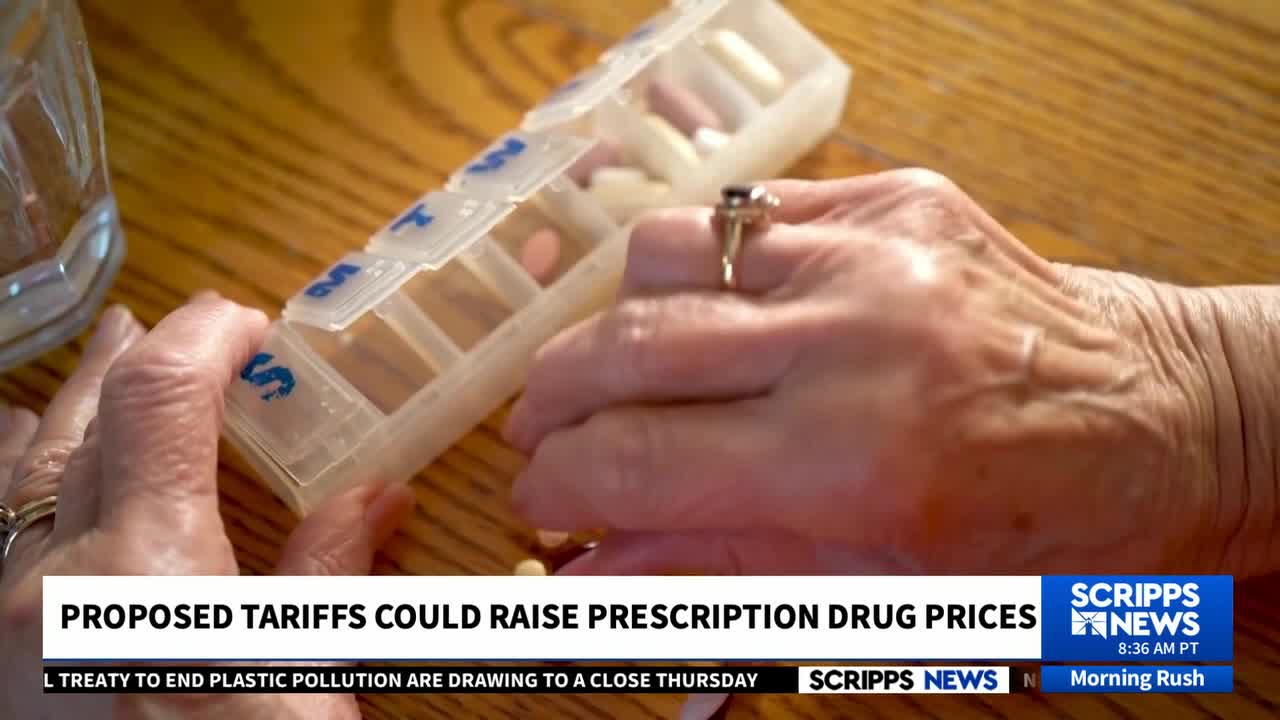President Donald Trump is threatening to impose tariffs on pharmaceutical imports, saying they would start small but could increase by up to 250%, a move critics say would be a major blow, especially for cancer patients.
Mariana Socal, an associate professor of health policy and management at Johns Hopkins University, said 30% of cancer patients already do not fill their prescriptions because they can’t afford them.
“Affordability of prescription drugs is a problem for U.S. consumers, even those who do have insurance,” she said.
There has also been a shortage of important chemotherapy drugs, and Socal warned that the tariffs could make matters worse.
“We are actually exposing patients to perhaps higher costs and deeper affordability problems or shortages because some manufacturers may choose to not sell to the United States or to send in lower quality products,” she said.
Brand-name drugs already cost three to four times more in the U.S. than in other developed countries. Even generic drugs, which are more likely to be imported from Europe, could see price increases if the tariffs are enacted.
RELATED STORY | US faces public health crisis due to prescription drug shortages, says ACP
Trump says his goal is to lower prescription costs by forcing drugmakers to produce in the United States. But Socal believes there are better approaches.
“We learned that other countries, they do either tax policies to strengthen and incentivize manufacturers or countries like Austria have done direct grants to help manufacturers build new facilities, build new production plants,” she said.
The Trump administration is promoting the plan as a way to lower drug costs in the long run, but Socal fears it could have unintended consequences for drug development.
“There is a possibility that the uncertainty in these markets can discourage investors from investing in these industries,” she said. “And of course, drug makers without that investment, they will have to make difficult decisions where they want to continue to pursue drug development.”
In May, Trump signed an executive order mandating that drugmakers provide “most favored nation” pricing. At the end of July, he sent letters to 17 manufacturers demanding they lower drug prices by Sept. 29.




